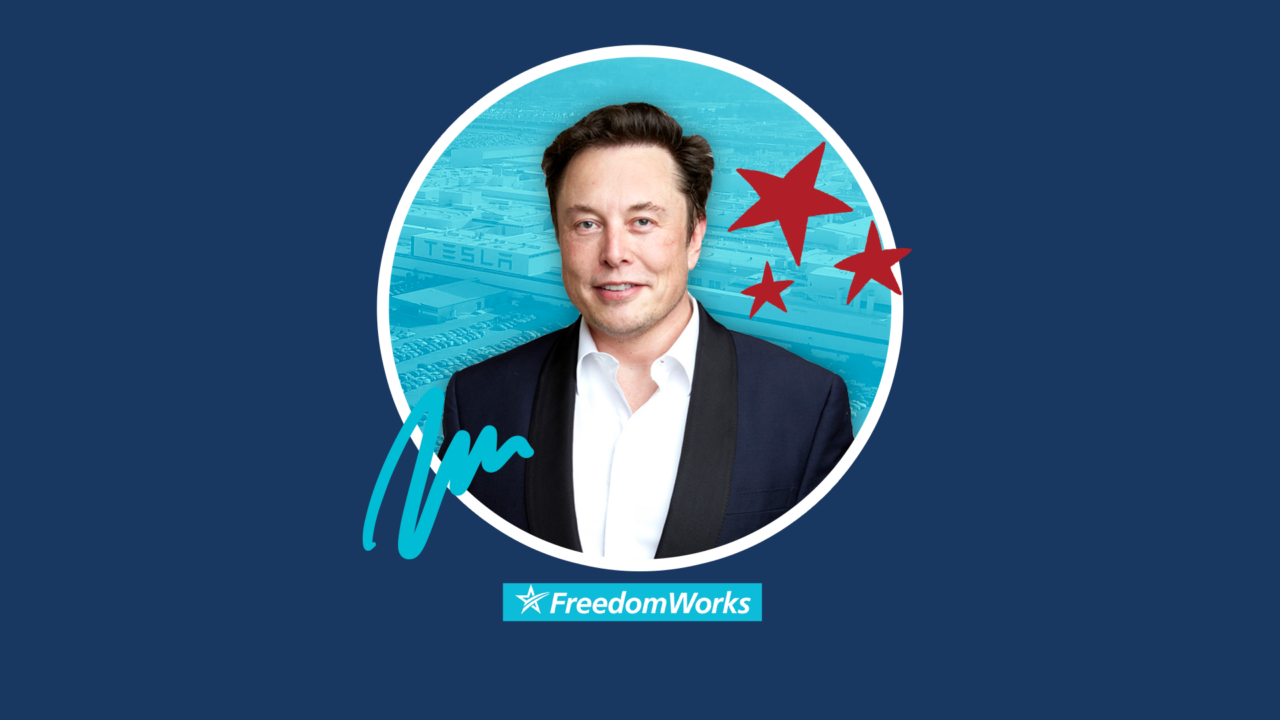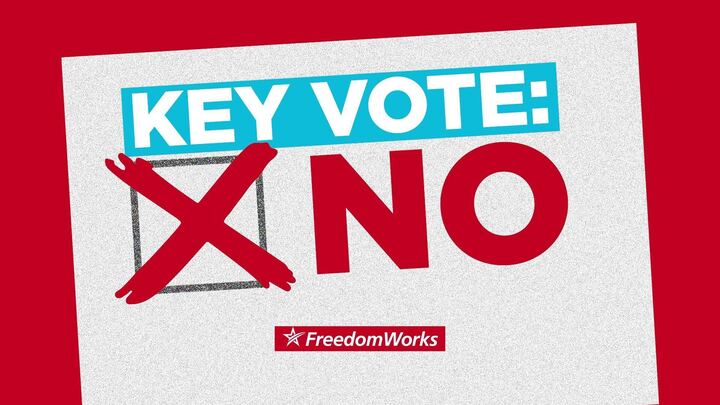Elon Musk Cares Far More About Twitter Returns Than ‘Free Speech’

As seen in Real Clear Markets
Few know this, but when Elon Musk initially came to North America from South Africa, his first real work was in banking. Bank of Nova Scotia specifically.
Where it gets interesting is that as opposed to a reverential view of one of Canada’s top banks, Musk quickly concluded that banks in their present form were “lame,” and broadly bereft of creative thinkers. As Musk explained it to PayPal biographer Jimmy Soni (The Founders), his assessment was that if banks “are this bad at innovation, then any company that enters the financial space should not fear that banks will crush them – because the banks do not innovate.”
The seemingly obvious problem was that investment banks weren’t exactly lined up to finance Musk’s vision for up-ending how finance was done. Keep in mind that this was the 1990s when the vast majority of payments were still made by checks sent in the mail.
This was still true in 1999 when Musk sold his first startup, Zip2, to then computer giant Compaq for $307 million. Musk’s take was roughly $21 million, which wasn’t nearly enough to take on name-brand banking behemoths. After which investment banks weren’t exactly going to finance Musk’s vision of banking and financial services that would be detached from traditional brick & mortar in favor of the still obscure Worldwide Web. If you’re wondering why, please re-read the paragraph before this one while considering how cash, check, and check cashing focused banks still were as the 20th century came to a close.
At which point “entrepreneurs” earn the previous description based on their vision of a future that is roundly rejected and frequently ridiculed by the best and brightest of the industry about to be disrupted. In Musk’s case, he took roughly $13 million of his Zip2 proceeds and directed them to X.com, his vision for a financial services startup that would operate from the internet. Please keep in mind again how audacious and outre Musk’s vision was. Banks have long spent big money on structures not because they’re wasteful, but because the structures conveyed to depositors soundness. Musk saw something different.
What’s important about his vision, one that he eventually merged with Confinity co-founders Peter Thiel and Max Levchin on the way to PayPal, is that the inability to innovate within an established financial institution proved very challenging. As Musk recounted to Soni, PayPal “was a hard company to keep alive.” So many times PayPal came so close to closing. Please think about that, while also thinking about PayPal’s $108 billion market capitalization. A company presently worth over $100 billion nearly died several times.
What it all signals is that Musk, Thiel, Levchin et al were in pursuit of the impossible. The latter is a statement of the obvious owing to the crucial truth that if their vision had been seen as remotely feasible, much-better-capitalized credit card companies, investment banks, and yes, banks would have put them out of business only to execute their vision on their own.
This is something to contemplate with Musk’s proposed, but uncertain acquisition of Twitter in mind. While Musk wasn’t Elon Musk when he started X.com, he is now. Investment banks are competing feverishly to finance his futuristic vision of commerce.
Which is all the evidence readers need that in pursuing Twitter, Musk’s goal is not “free speech.” Really, how did anyone ever seriously believe that freedom to speak one’s mind was ever a prime motivator? More to the point, how did anyone ever think investment banks would put client capital on the line (and presumably their own) for Musk to pursue such a basic vision? Sorry, but billions, let alone $44 billion aren’t mobilized so that people like yours truly can freely opine on censored subjects like the coronavirus, Hunter Biden, or other subjects that Big Tech has allegedly squashed the Right’s discussion of.
Notable about all this is that Musk began to hedge almost as soon as he referred to himself as a “free speech absolutist.” At one point he commented that “if the citizens [of the U.S.] want something banned, then pass a law to do so, otherwise it should be allowed.” This is exactly the reverse of what the First Amendment provides about legislation affecting this area, which is, “Congress shall make no law … abridging the freedom of speech.” The Constitutional burden is on the would-be infringer, in other words — not the other way around, which is what Musk seems to believe. Well, of course.
Left leaning as many investors may be, ultimately they worship at the altar of returns. Assuming Musk purchases Twitter at the initial agree-to price, or at a lower one, he’ll have to deliver returns. Turning Twitter into the proverbial Town Square just won’t cut it. Which makes sense.
What also makes sense is that with Twitter, it’s not like Zip2, PayPal, Tesla, SpaceX and other Musk ventures that were so difficult to keep alive (and sometimes still are, particularly without government contracts or subsidies). Now that he’s Elon Musk, he can purchase what’s established, only to transform it in ways most of us can’t begin to imagine. Put another way, Musk is past the stage of doing the impossible. Now, he can turn what’s already valuable into something otherworldly.
What will it be? The bet here is that Musk envisions completing his X.com vision of a global financial services entity; one that will include a private currency meant to do what some will see as impossible: give the dollar a run for its money. Whether he believes a lot or a little in free speech, this was never a Musk-ian basis for mobilizing tens of billions.
Which is not good or bad, per se. It’s just business.



